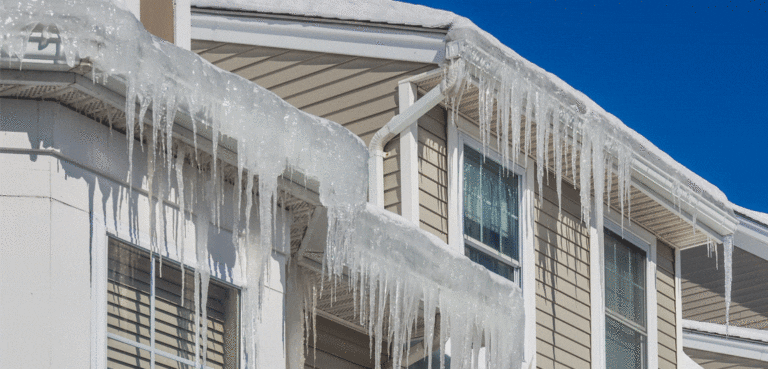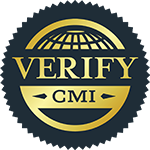Finding the Right Home Inspector: Tips and Considerations
Finding the right home inspector is an important step in the home-buying process. A thorough inspection can help ensure that you fully understand the property’s condition and make an informed decision about the purchase. Here are the most important things to consider when choosing a home inspector.
Expertise and Experience: The Key to a Comprehensive Inspection
One of the most important factors to consider when choosing a home inspector is their expertise and experience. You want to choose a professional with the knowledge, skills, and experience necessary to evaluate the property comprehensively.
The best way to assess an inspector’s expertise and experience is to look at their track record. Look for an inspector who has been in the business for several years and has a proven history of providing high-quality inspections. It’s also good to check their professional background and credentials, such as their education, certifications, and memberships in professional organizations.
Additionally, looking for an inspector with experience with the specific type of property you are buying is a good idea. For example, if you’re purchasing an older home, you want to choose an inspector who has experience with older homes and is familiar with the issues and challenges that come with them.
In short, when choosing a home inspector, it’s important to look for someone with the expertise and experience necessary to provide a thorough evaluation of the property. This will help ensure that you fully understand the property’s condition and make an informed decision about the purchase.
Licensing and Certification: Essential Qualifications for a Home Inspector
When choosing a home inspector, it’s important to ensure they are licensed and certified by a reputable organization. This will help ensure the inspector has the knowledge, experience, and skills to perform a thorough inspection.
A license and certification from a reputable organization demonstrate that the inspector has undergone the necessary training, education, and testing to become a professional home inspector. It also shows they commit to upholding professional standards and providing high-quality inspections.
In addition to a license and certification, you may also want to look for an inspector who is a member of a professional organization, such as the National Association of Home Inspectors (NAHI) or the International Association of Certified Home Inspectors (InterNACHI). These organizations have rigorous membership requirements and provide ongoing training and education to their members, helping to ensure that they are knowledgeable and up-to-date on the latest standards and best practices.
To ensure that you’re getting a thorough and professional inspection, ensure the inspector you choose is licensed and certified by a reputable organization. This will give you peace of mind and help you make an informed decision about purchasing your new home.
It is important to note that not all states require licensing for home inspectors.
Inspection Methodology: Understanding How Your Home Will be Evaluated
When choosing a home inspector, it’s important to understand their inspection methodology. This refers to the process and procedures that the inspector will follow when evaluating the property.
A thorough inspector will follow a standard inspection process, which typically includes visually examining the property’s interior and exterior, including the roof, attic, electrical, plumbing, HVAC systems, and any other significant components. The inspector should take the time to evaluate the property thoroughly and report on any areas of concern and any recommended repairs or upgrades.
When choosing a home inspector, asking them about their inspection methodology is a good idea. Find out what they will be looking for during the inspection and how they plan to evaluate the property. This will give you a better understanding of what to expect from the inspection and what information you will receive.
Additionally, asking the inspector if they use any special tools or technologies during the inspection, such as thermal imaging cameras or moisture meters, is a good idea. These tools can provide a more detailed and accurate evaluation of the property, helping to identify any issues that might not be visible to the naked eye.
To ensure you get a thorough evaluation of the property, it’s important to choose a home inspector with a well-established inspection methodology. It takes time to evaluate the property thoroughly.
Availability: Ensuring the Home Inspector is Available When You Need Them
When finding the right home inspector, it’s important to consider their availability on the dates you need. If you’re working on a tight timeline, such as with a quick closing or a fast-moving real estate market, you may want to choose an inspector who can perform the inspection quickly and efficiently.
This may mean looking for an inspector who is available for an inspection on short notice or who has flexible scheduling options that can accommodate your needs. It’s also important to ensure that the inspector is available on the dates that work best for you, whether a weekday or weekend, early in the morning or late in the evening.
In addition to availability, it’s also important to consider the inspector’s responsiveness and communication. Can they be reached easily by phone or email? Do they respond promptly to questions and concerns? Are they willing to provide additional information or clarification as needed?
Having an inspector who is responsive, communicative, and available when you need them can help ensure that the inspection process goes smoothly and that you receive the information you need to make an informed decision about purchasing your new home.
Inspection Fee: Balancing Cost and Quality
When finding the right home inspector, it’s important to consider the cost of the inspection. Inspectors may charge a flat fee or an hourly rate, and the price can vary depending on the size and complexity of the property, as well as the inspector’s experience and qualifications.
While it may be tempting to choose the cheapest option, it’s important to remember that inspection quality is the most critical factor. A thorough inspection can help identify any potential issues with the property, which can help you make an informed decision about the purchase. In addition, a high-quality inspection can save you time, money, and stress in the long run by helping you avoid costly repairs and renovations.
When considering the inspection cost, it’s also important to remember that the inspector’s fee is just one part of the overall cost of buying a home. Additional expenses may be associated with the inspection, such as the cost of any necessary repairs or upgrades, so it’s important to factor these into your budget.
Recommendations and Reviews: Gaining Insights into the Home Inspector’s Reputation
When finding the right home inspector gathering as much information as possible about their expertise and experience is important. One way to do this is by asking for recommendations from friends, family, and real estate agents and checking online reviews and testimonials from previous clients.
These recommendations and reviews can provide valuable insights into the inspector’s level of expertise and the quality of their work. In addition, they can help you understand what to expect from the inspector and their strengths and weaknesses. This can help you choose an inspector who fits your needs well and can provide a high-quality inspection.
In addition to recommendations and reviews, you may also want to consider asking the inspector for references. A reputable inspector will be happy to provide references from previous clients, and you can use these references to gain further insight into the inspector’s experience and qualifications.
Inspection Sample Report: Understanding the Home Inspector’s Reporting Style
When choosing a home inspector, it’s important to consider the level of detail they provide in their inspection reports. This is why it’s a good idea to ask for a sample of their inspection reports before deciding.
A well-written inspection report should be clear, concise, and understandable. It should provide a comprehensive overview of the property’s condition, highlighting any significant issues that must be addressed. The report should also include recommendations for addressing these issues and provide a clear understanding of the property’s overall condition.
By reviewing a sample of the inspector’s reports, you can better understand their reporting style. This can help you determine whether the inspector is a good fit for your needs and whether they can provide the information you need to make an informed decision about the property.
The Importance of On-Site Inspection in Home Inspection
When choosing a home inspector, it’s important to ensure they perform an on-site inspection rather than relying solely on technology. While technology can certainly be a valuable tool in the inspection process, it’s no substitute for a thorough, hands-on property evaluation.
An on-site inspection allows the inspector to get a complete and in-depth understanding of the property’s condition. They can visually inspect every aspect of the property, including its structure, systems, and components. This allows them to identify issues or concerns that may not be visible through technology alone.
Moreover, an on-site inspection allows the inspector to take note of any anomalies or warning signs, such as cracks in the foundation, water damage, or electrical hazards. These issues may not be apparent through technology alone and are crucial to uncovering the property’s overall condition.
The Importance of Good Communication Skills in Home Inspection
Finding someone with excellent communication skills is important when choosing a home inspector. A good inspector should be personable, approachable, and able to explain the inspection results clearly and concisely. This will ensure that you fully understand the property’s condition and any issues found.
Good communication skills are essential in home inspection because the inspector evaluates the property and communicates their findings. They should be able to clearly explain any issues that are found and what the implications of those issues may be. This will help you to make an informed decision about the property and any potential repairs that may be needed.
In addition, you want an inspector who will take the time to answer your questions. Whether you’re a first-time home buyer or a seasoned homeowner, you will likely have questions about the inspection process and the property itself. A good inspector will be patient and willing to answer your questions, helping you to feel more confident and informed about your decision.
Conclusion: The Importance of Choosing the Right Home Inspector
The home-buying process can be a complex and stressful experience. However, choosing the right home inspector can make all the difference. The home inspector is responsible for thoroughly evaluating the property, providing a comprehensive report on its condition, and helping you make an informed decision about whether or not to proceed with the purchase.
There are several key factors to finding the right home inspector. These include the inspector’s expertise and experience, licensing and certification, inspection methodology, availability, inspection fee, recommendations and reviews, an inspection report sample, on-site inspection, communication skills, detailed inspection agreement, and insurance coverage.
Considering these factors ensures that you choose a professional with the knowledge and experience to inspect thoroughly and accurately. Then, with a detailed inspection report, you can feel confident about purchasing or passing on the property.
The right home inspector can make all the difference. Take the time to research and find the right professional for the job. With their expertise and guidance, you can feel confident and secure in your home-buying journey.
Recent Blog Post

Finding the Right Home Inspector: Tips and Considerations
Finding the right home inspector is an important step in the home-buying process. A thorough inspection can help ensure that you fully understand the property’s

What is a Home Inspection: A Guide for Homebuyers
What is a Home Inspection? Suppose you’re in the market for a new home. In that case, you may be familiar with the term “home

Ice Dams: A Winter Woe for Minnesota Homeowners
Winter weather can bring many challenges for homeowners, but one of the most unpleasant is the formation of ice dams. Ice dams can cause significant

Roof Algae: The Importance of Effective Removal
Your roof is one of the most important parts of your home, not just because it keeps you dry and protects your interior but because

What Is A Home Walk-Through Consultation
In recent years, competition in the real estate industry has skyrocketed. To make their offers more attractive, some home buyers are giving up their right

Saddle Valves – What You Should Know
An ice maker and water dispenser on your fridge is a great invention. But you have to ensure you have a good water supply to




Leave a Reply
Want to join the discussion?Feel free to contribute!